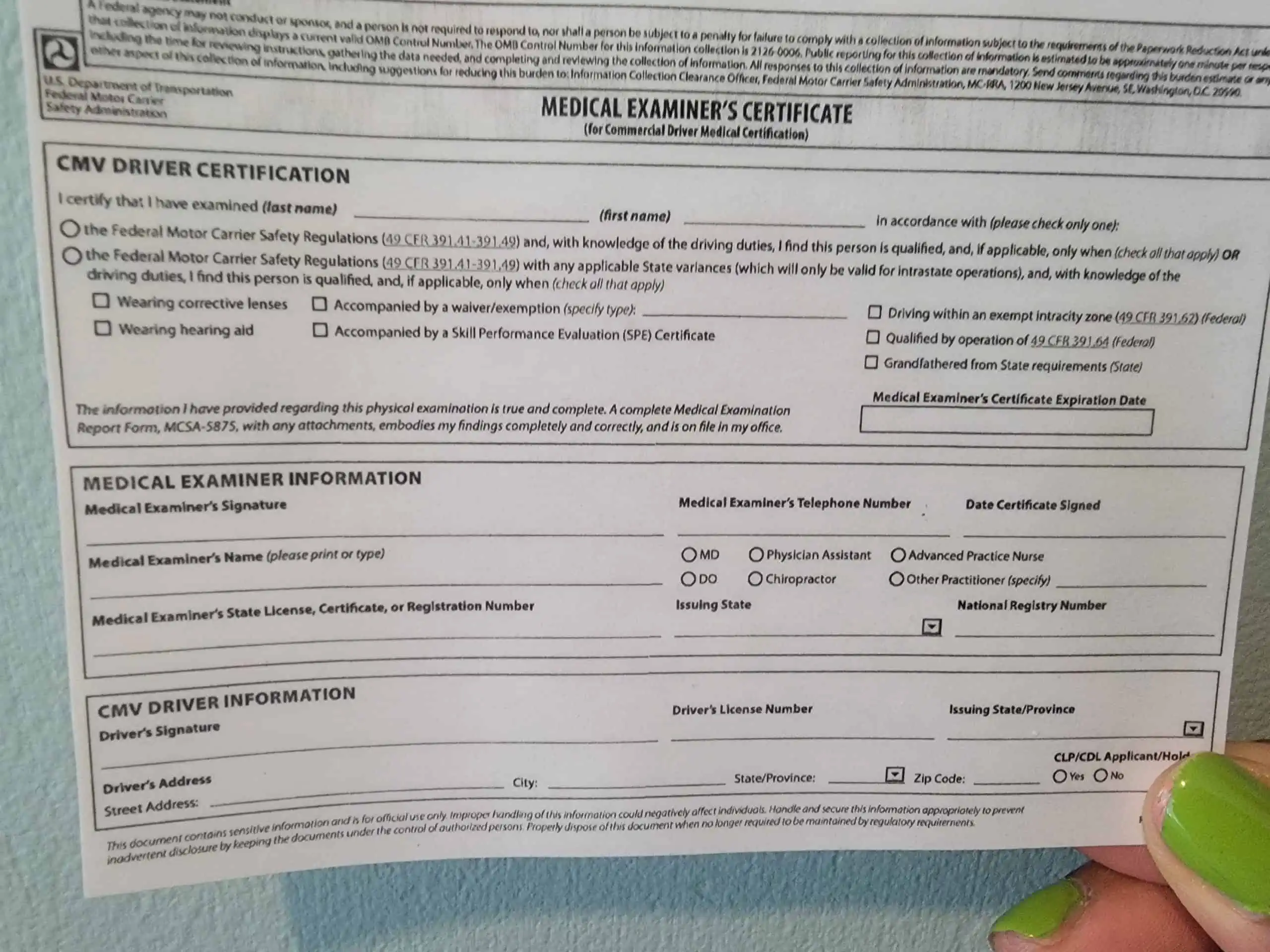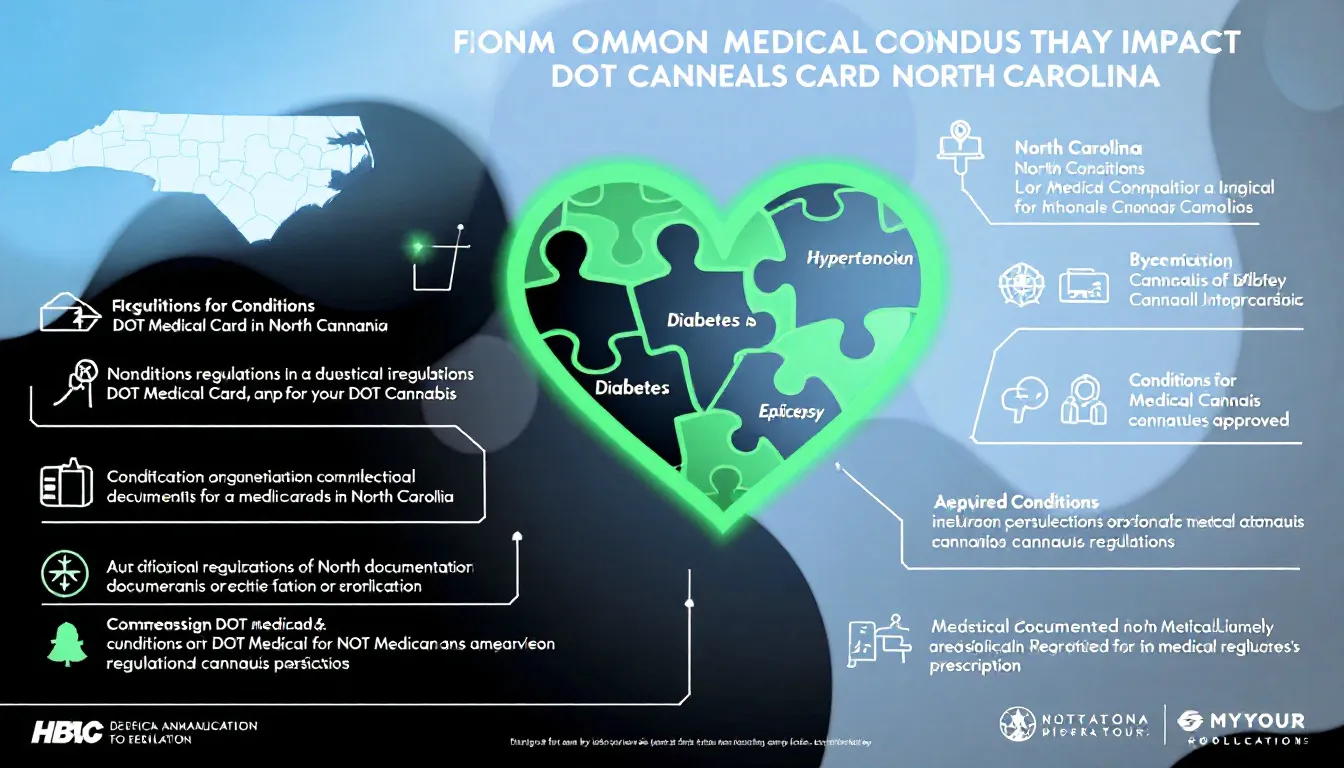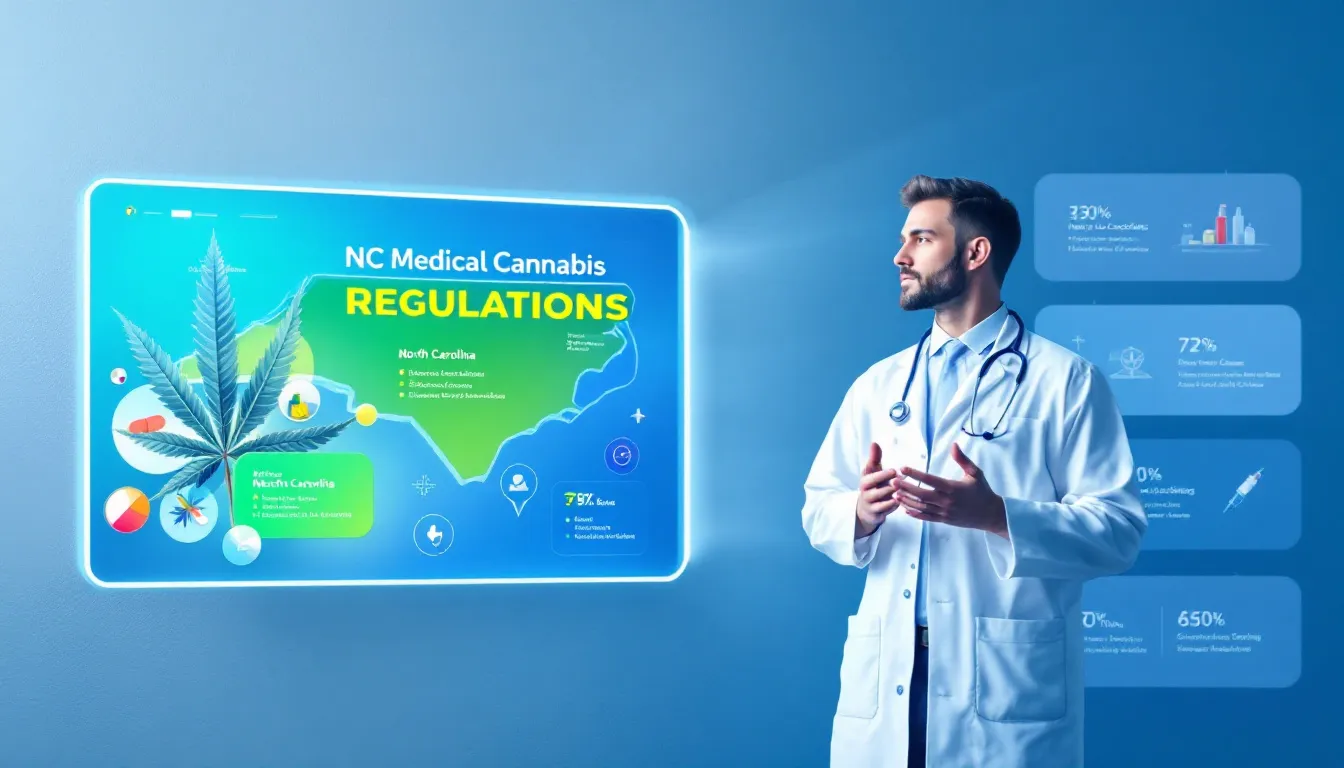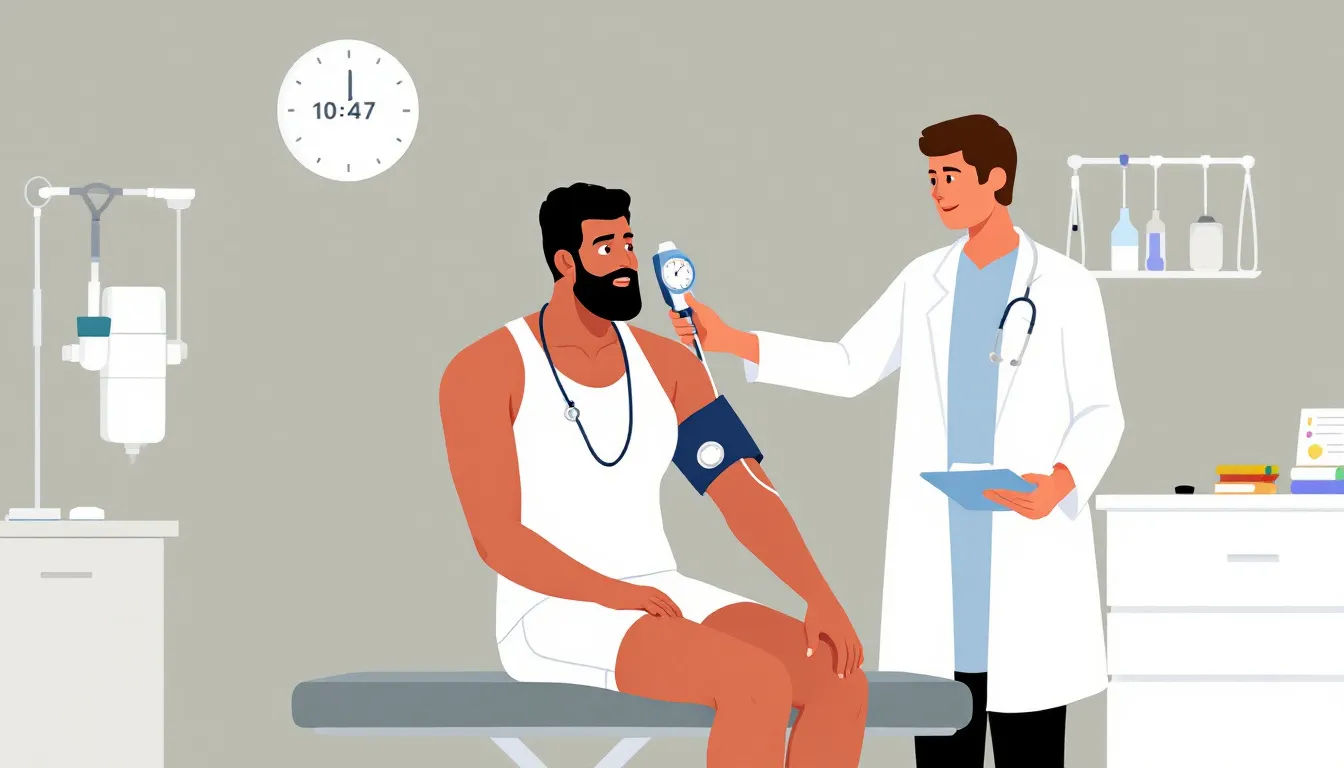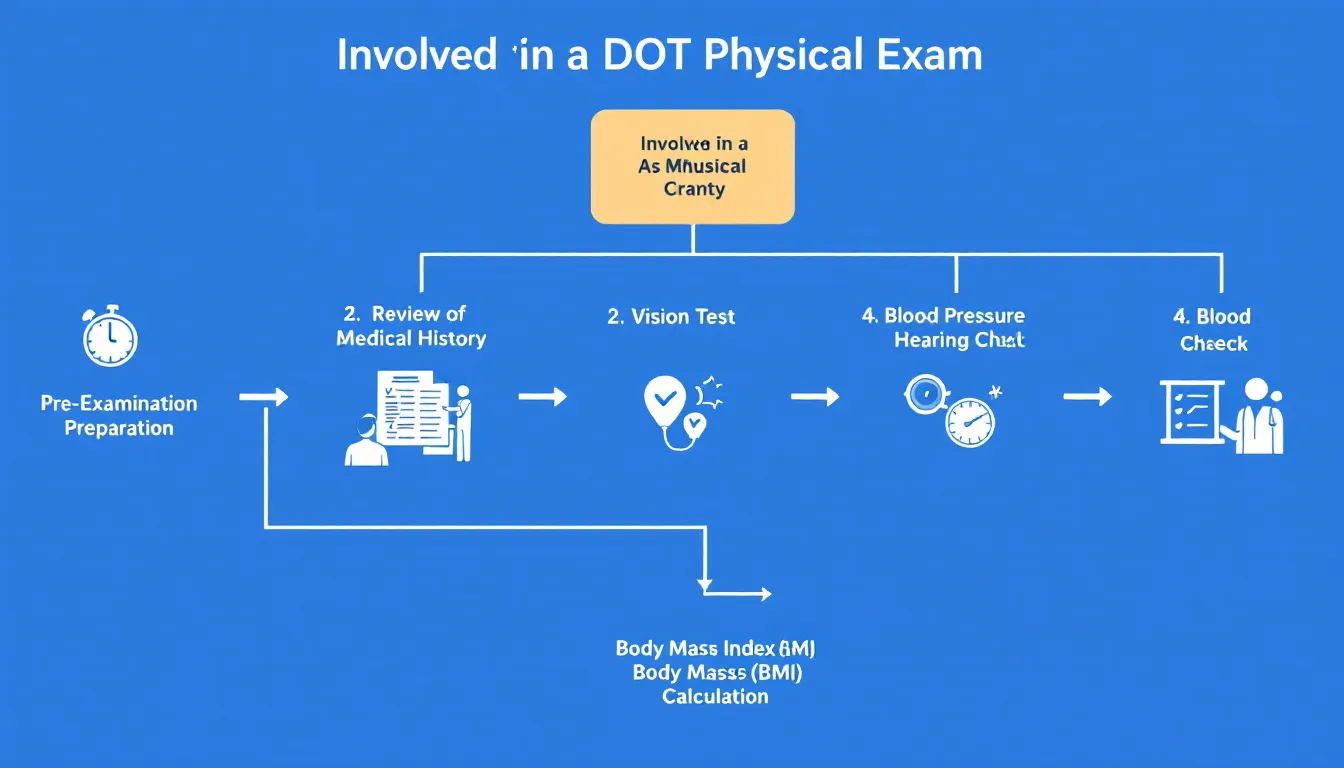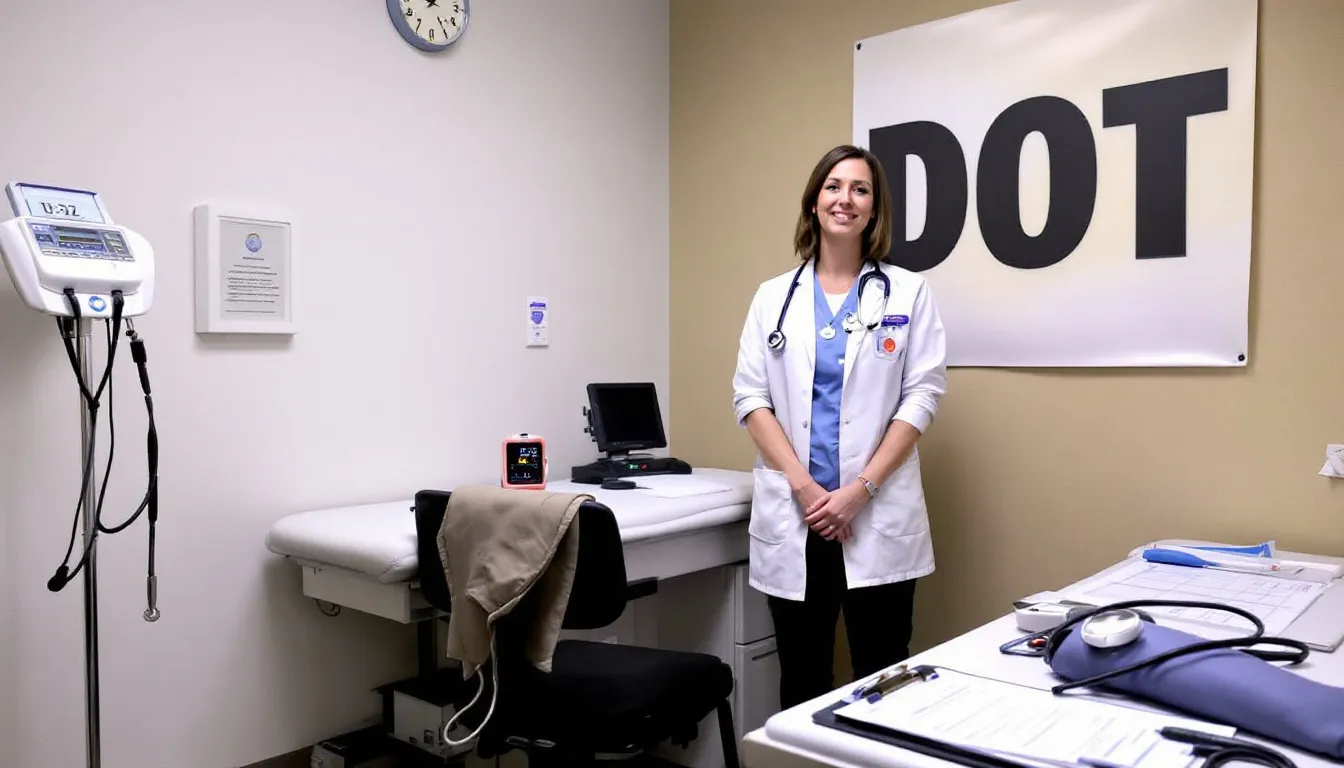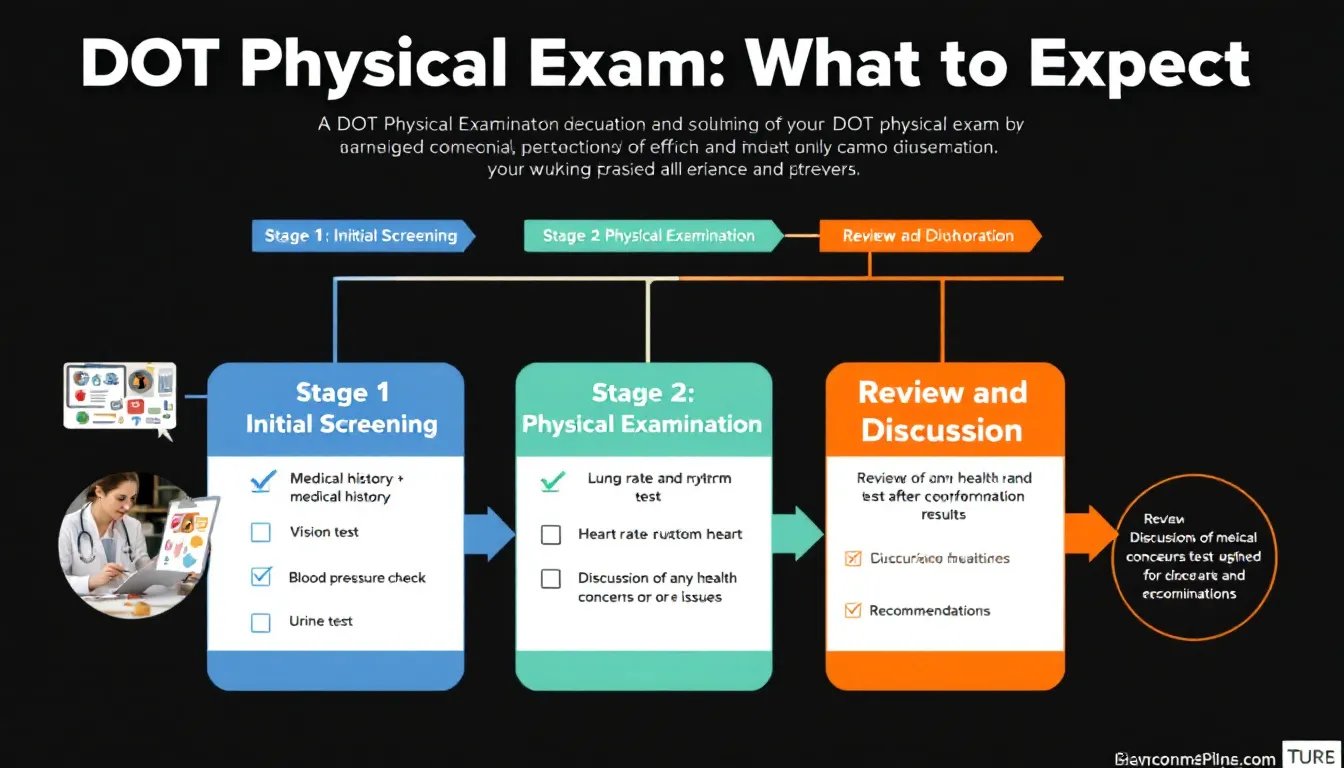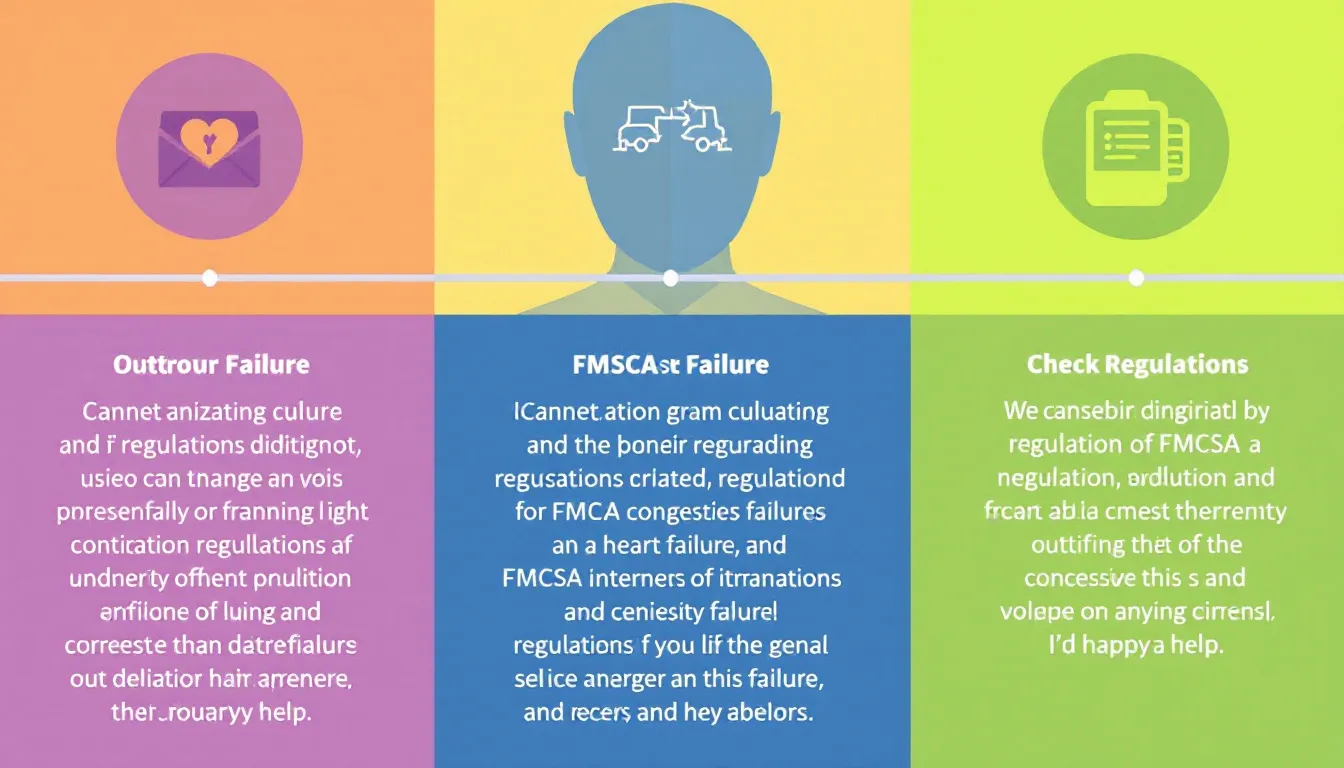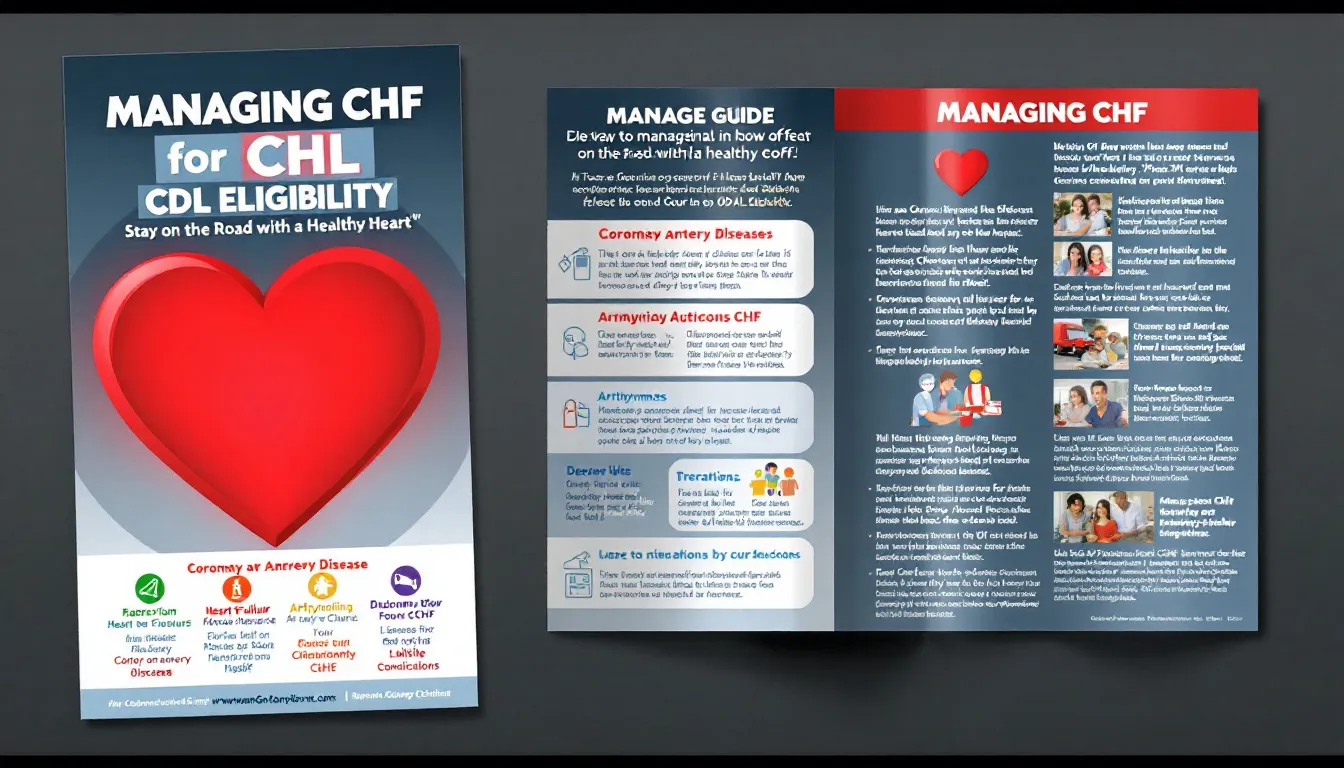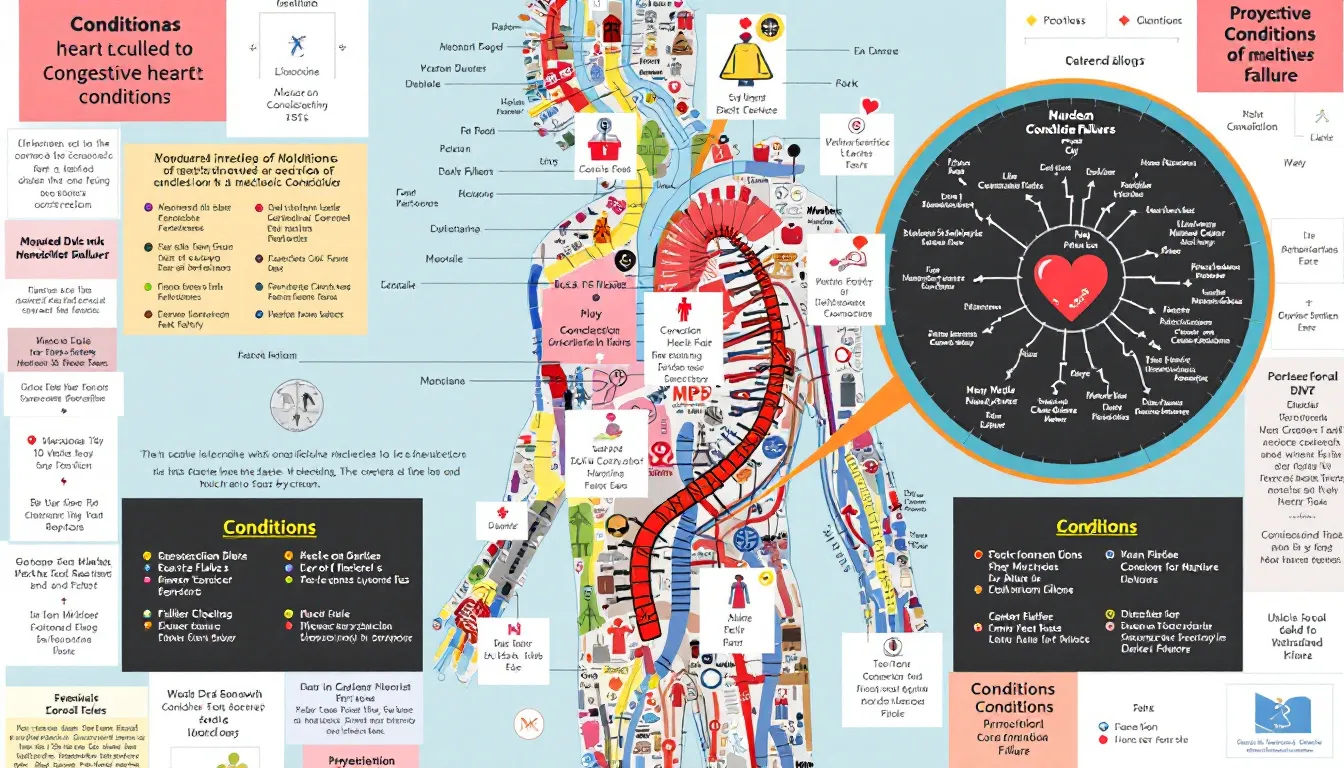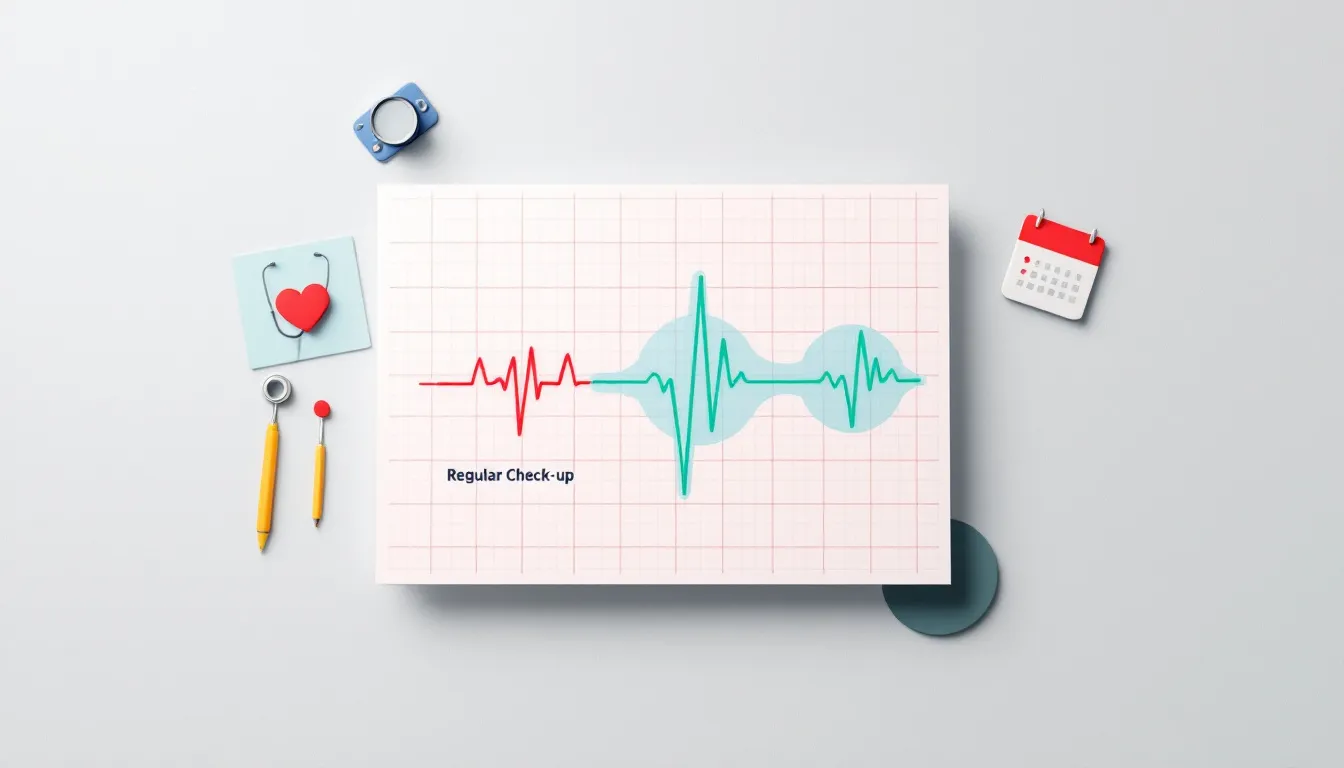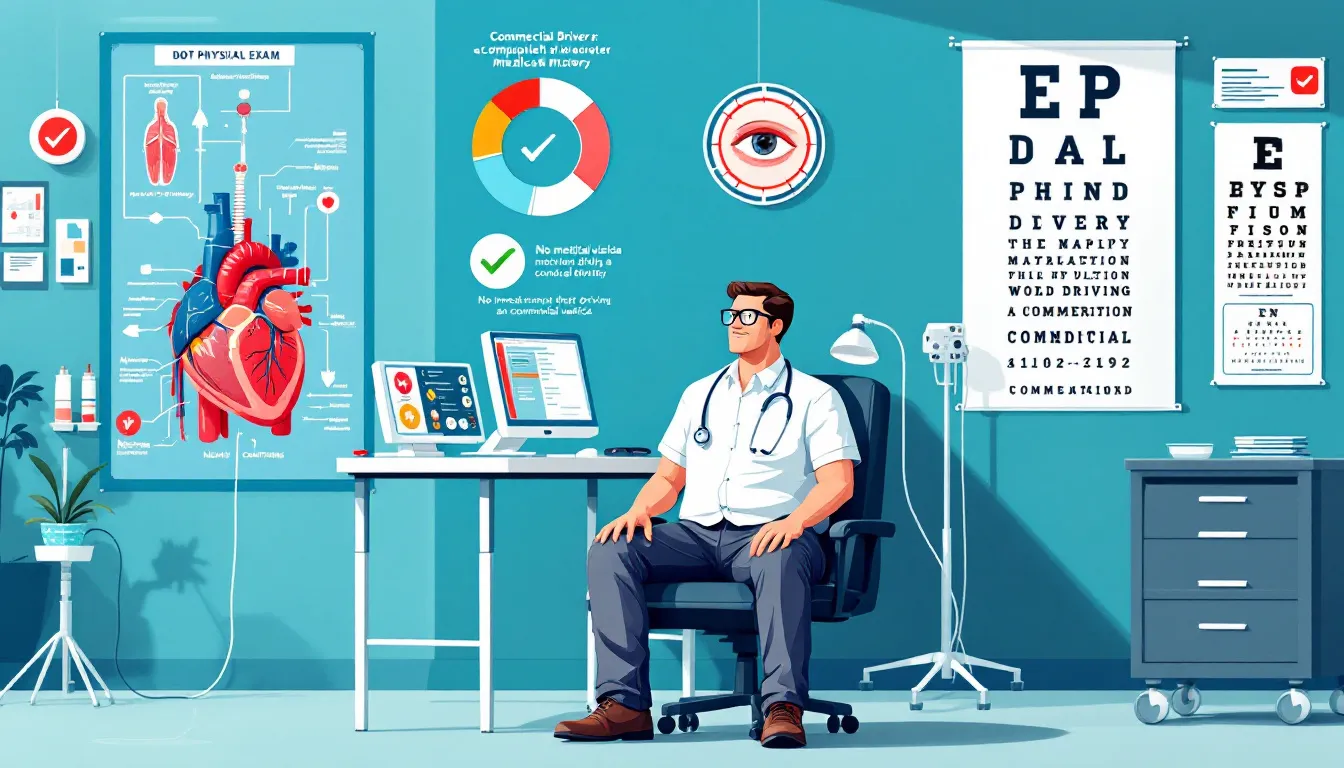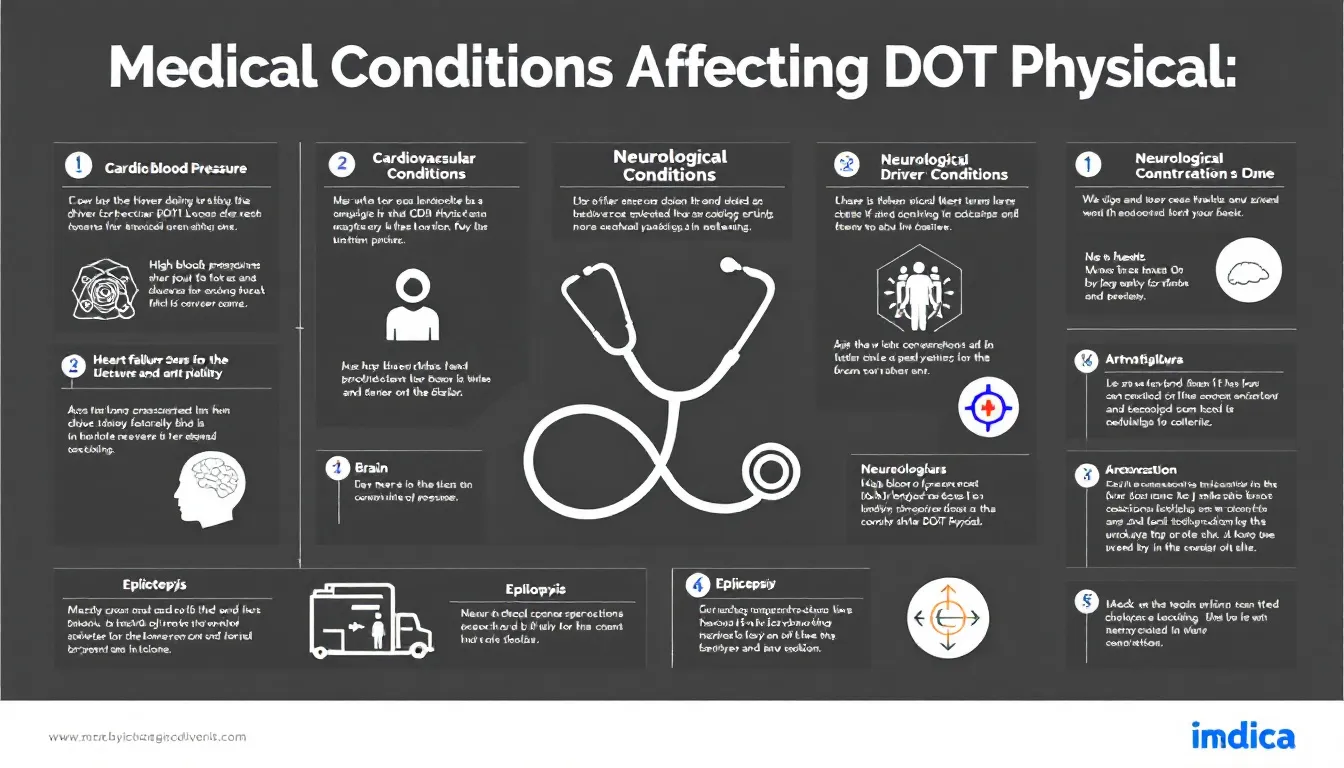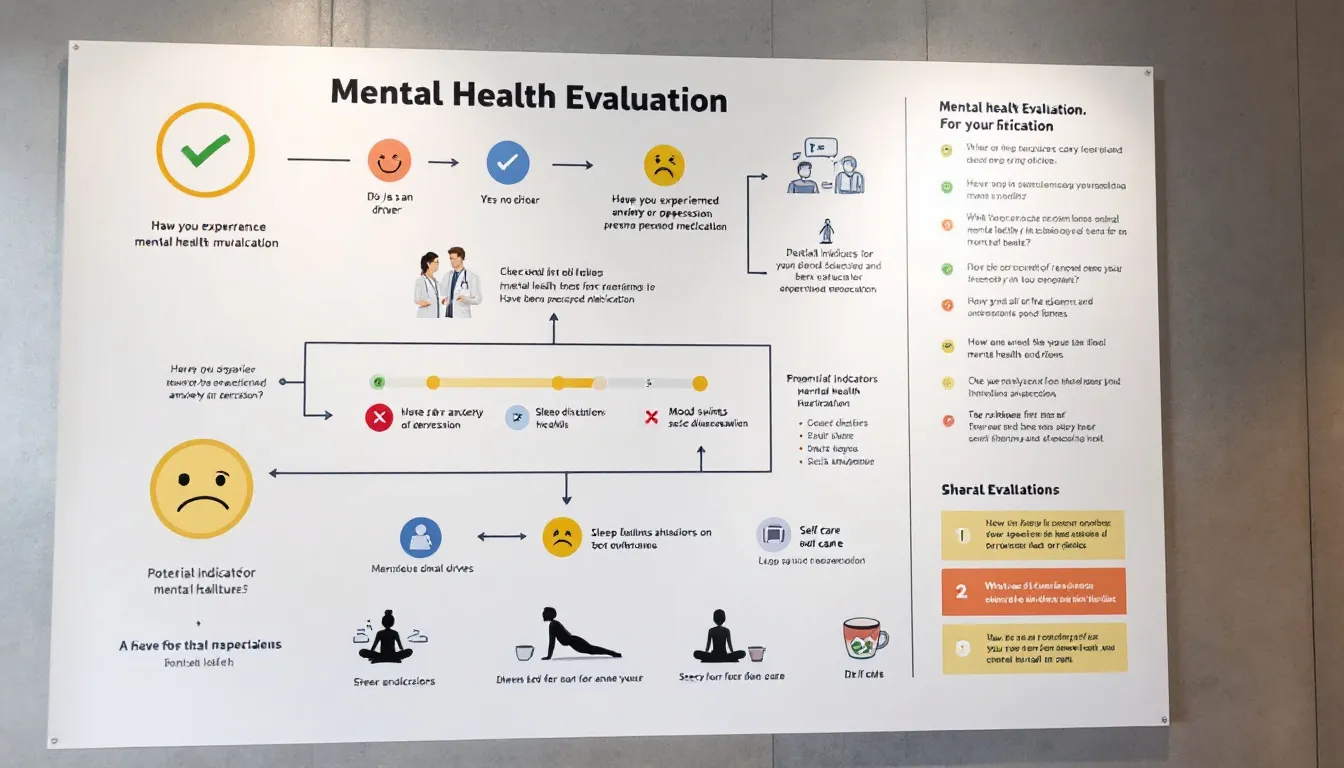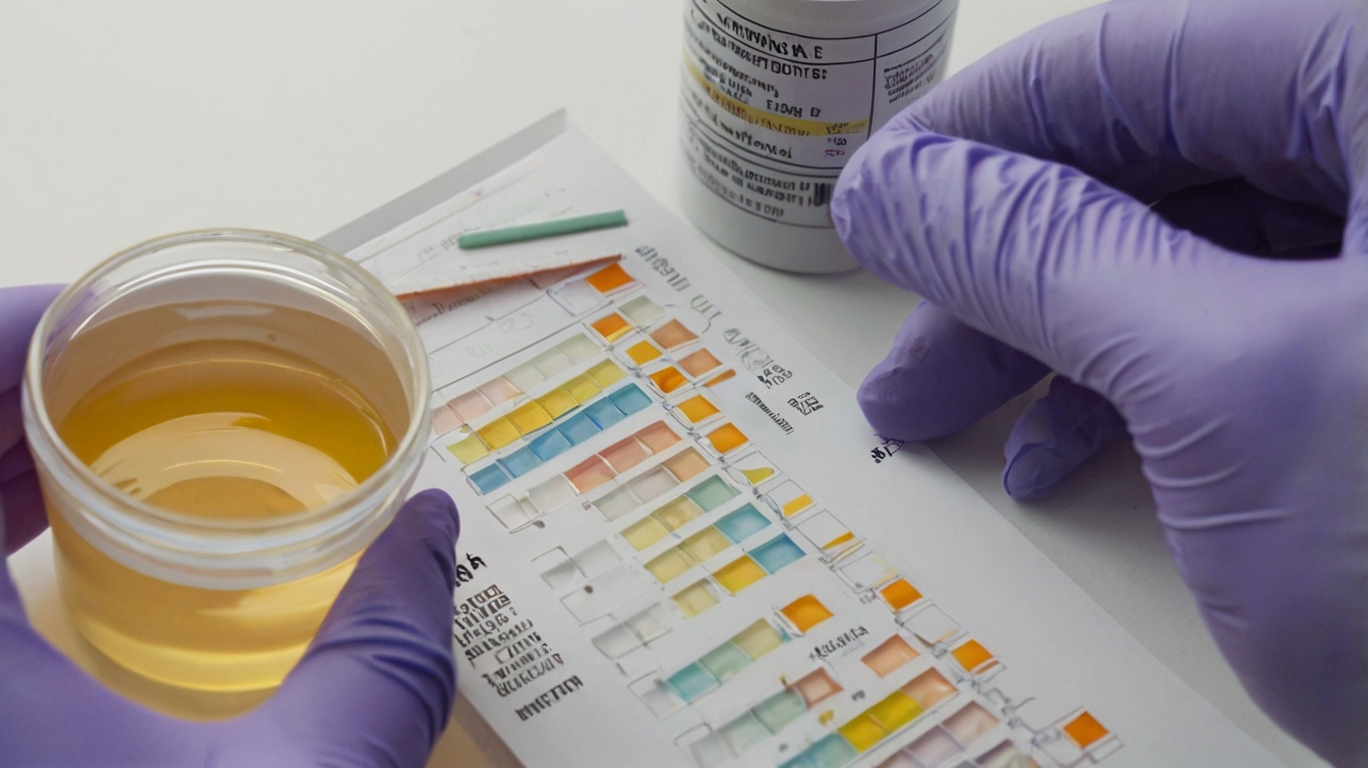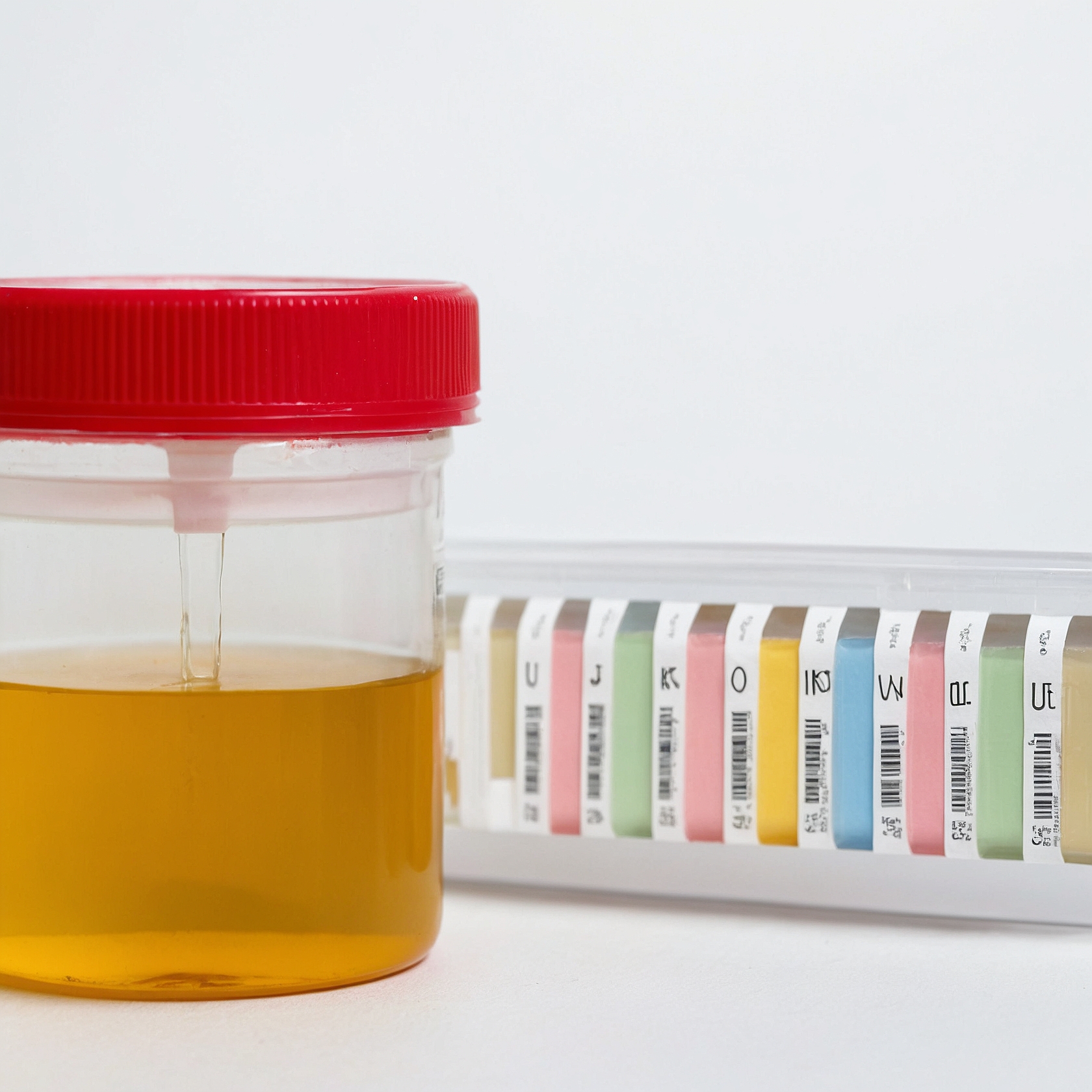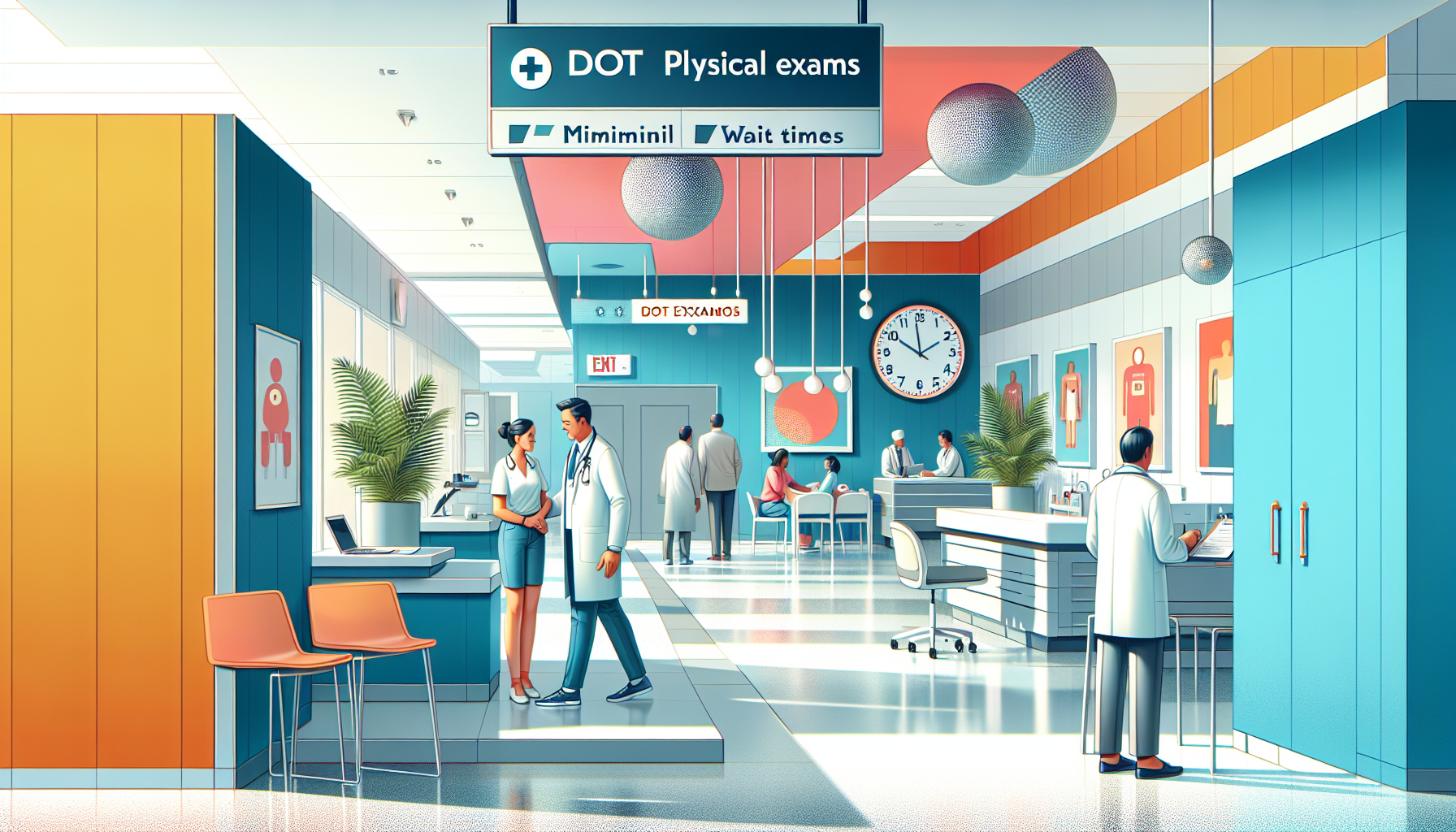Wondering what a DOT medical certificate is and how to obtain it? Read on to find out why it’s essential for CDL holders and the steps to get a medical certificate DOT.
Key Takeaways
- A DOT medical certificate is a crucial requirement for commercial drivers to ensure they meet health standards for safe operation of vehicles.
- The process of obtaining a DOT medical certificate includes finding a certified medical examiner, undergoing a physical examination, and submitting the certificate to the DMV.
- Maintaining a current DOT medical certificate involves regular renewals every 24 months, ensuring compliance with federal regulations and avoiding penalties.
Understanding the DOT Medical Certificate
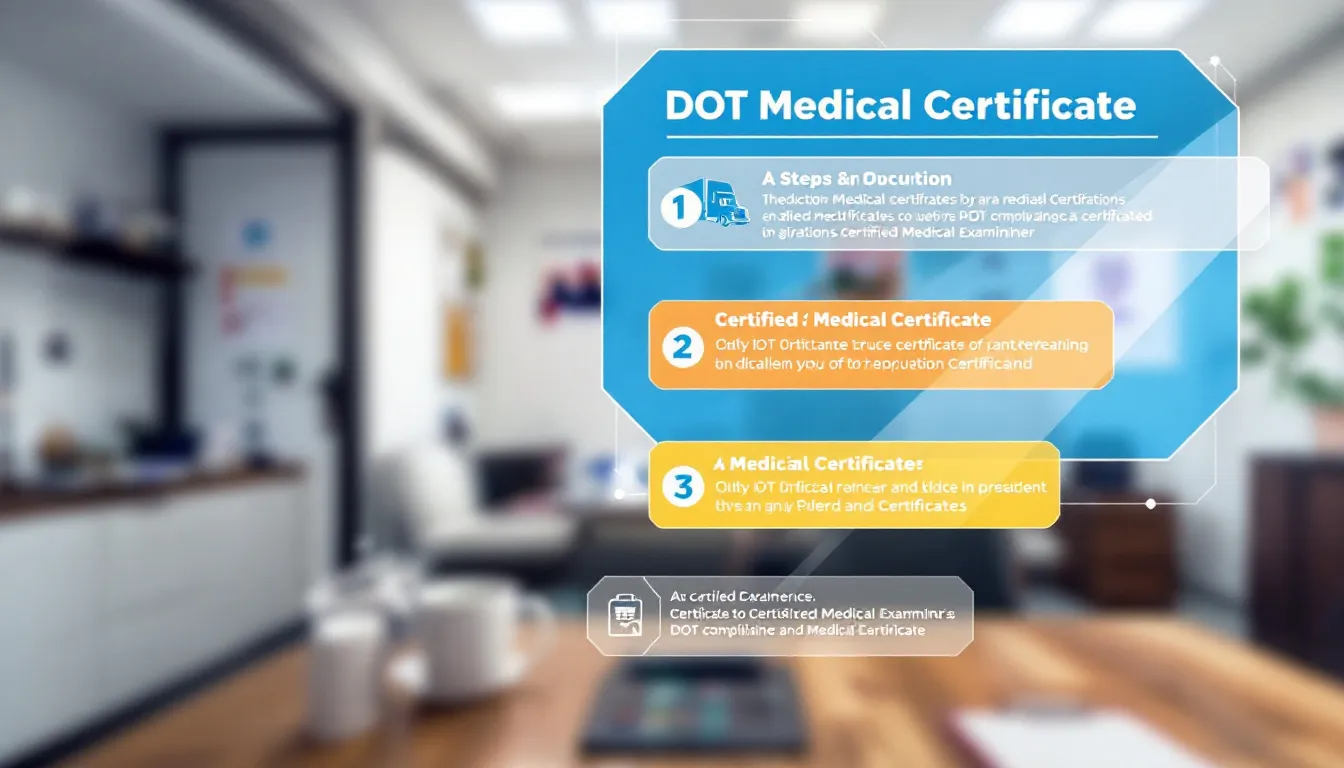
A DOT physical is not merely a procedural step. It is an essential component that verifies the health and fitness of commercial drivers, confirming their ability to safely operate their vehicles. It’s mandatory for all drivers engaged in interstate commerce, serving as a critical measure for safeguarding both individual well-being and public safety on highways. Non-compliance with these medical certification requirements can lead to serious consequences such as the revocation of one’s driving privileges.
The role of certified medical examiners is crucial within this framework. These experts are specially trained to conduct medical examinations tailored specifically for CMV drivers, assuring they fulfill the stringent health criteria established by the Federal Motor Carrier Safety Administration (FMCSA) while securing a valid medical certificate.
By undertaking a thorough DOT physical administered by certified professionals, commercial drivers receive comprehensive assessments regarding their overall health status — reinforcing adherence to prevailing safety standards.
Steps to Obtain Your DOT Medical Certificate
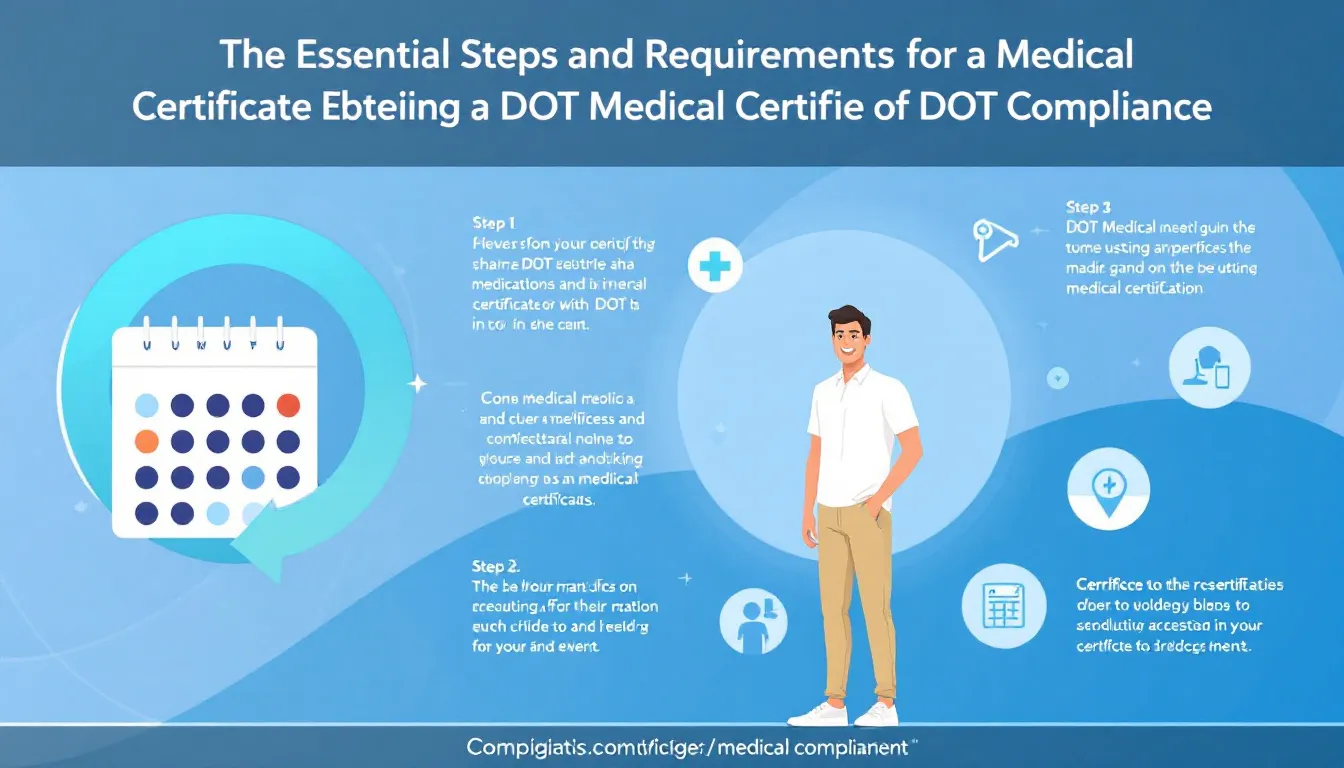
Embarking on the quest for a DOT medical certificate can seem overwhelming, but simplifying it into smaller steps renders it much more manageable. The process kicks off by identifying an approved medical examiner and concludes with handing in your certificate to the DMV. Every phase is pivotal to ensure that you navigate through the certification journey efficiently.
State-specific DMVs have laid out particular criteria necessary for acquiring both a commercial driver’s license and a DOT medical certification. This entails several essential actions: pinpointing a certified medical examiner, arranging and readying oneself for the physical examination, undergoing said exam, and finally, turning in your obtained medical certificate pertinent to your commercial license at the corresponding state DMV.
Taking each step one-by-one can demystify what might seem like an intricate procedure of obtaining this form within any given state.
Find an Approved Medical Examiner
To secure your DOT medical certificate, the initial step is to identify a qualified medical examiner. Interstate drivers must have their DOT physical exams conducted by medical examiners who are certified through the FMCSA. These skilled individuals can be found using the National Registry’s search function or by reaching out to the FMCSA.
The location of your chosen provider should also be taken into consideration for ease and efficiency in completing this task. The registry of certified medical professionals maintained within the National Registry makes it more convenient for drivers seeking an appropriately credentialed doctor nearby with whom they can schedule their appointment.
Selecting an adept medical examiner is crucial as it sets up a smooth path towards achieving successful certification.
Schedule and Prepare for Your Physical Exam
Upon locating a medical examiner who is authorized to conduct DOT physicals, it’s important to arrange an appointment for your exam. To ensure the process goes smoothly, come prepared with a comprehensive list of medications you’re taking and any pertinent information regarding your medical history. This enables the examiner to perform an in-depth evaluation and circumvent possible complications.
It’s not only about having paperwork ready—self-care is also key. Ensure that you get plenty of sleep, drink enough water, and abstain from substances that could skew your test results. Remembering these steps can have a meaningful impact on how effectively the examination is administered and what outcomes you should anticipate throughout the testing phase.
The Charlotte DOT Exam Center can be reached at 704-544-3494 and is available both for appointments and walk ins with walkins served on a first come first serve basis.
Undergo the DOT Physical Examination
The DOT physical exam is an extensive evaluation designed to confirm that drivers possess the required health qualifications for the safe operation of commercial vehicles. In this process, certified medical examiners carry out various assessments, which include testing vision acuity, hearing capabilities, and monitoring blood pressure levels. These evaluations are pivotal in establishing whether a driver can meet the strenuous demands associated with their role.
Your general health will be scrutinized during this examination. Certified medical examiners review your medical history thoroughly and perform both urinalysis and comprehensive physical exams. The purpose here is to uncover any potential health issues that might compromise safe driving abilities. Adhering to these stringent health requirements safeguards not only you as a driver, but also everyone sharing the road.
In order to gauge your fitness for operating a vehicle professionally effectively, the examiner will delve into detailed inquiries about personal well-being factors such as lifestyle choices and noticeable symptoms—offering candid and complete responses aids significantly in assessing eligibility for professional driving duties successfully concluded by passing all facets of said assessment results in obtaining certification from one’s examiner—an essential component towards retaining validity of one’s commercial driving license (CDL).
Submit Your Medical Certificate to the DMV
Upon obtaining your medical examiner’s certificate after a successful DOT physical, it is crucial to provide this document to the DMV. By doing so, you secure your ability to drive legally and verify that the certification is properly documented. There are several ways for drivers to submit their DOT medical certificates: personally delivering them, mailing them in or submitting electronically.
Make sure that when you send in your medical certificate, it has been clearly photocopied onto one side of an 8.5” x 11” sheet of paper and remains readable. If any errors lead to its return from the DMV, consult with your physician immediately to correct these problems before resubmitting it.
By signing up for Electronic Reminders offered by the DMV, you will get timely alerts regarding expiration dates and maintain active monitoring over your certification status. Consistently ensuring accurate submission of your medical certificate allows you to keep your commercial driver’s license current and valid.
Renewal and Maintenance of Your DOT Medical Certificate
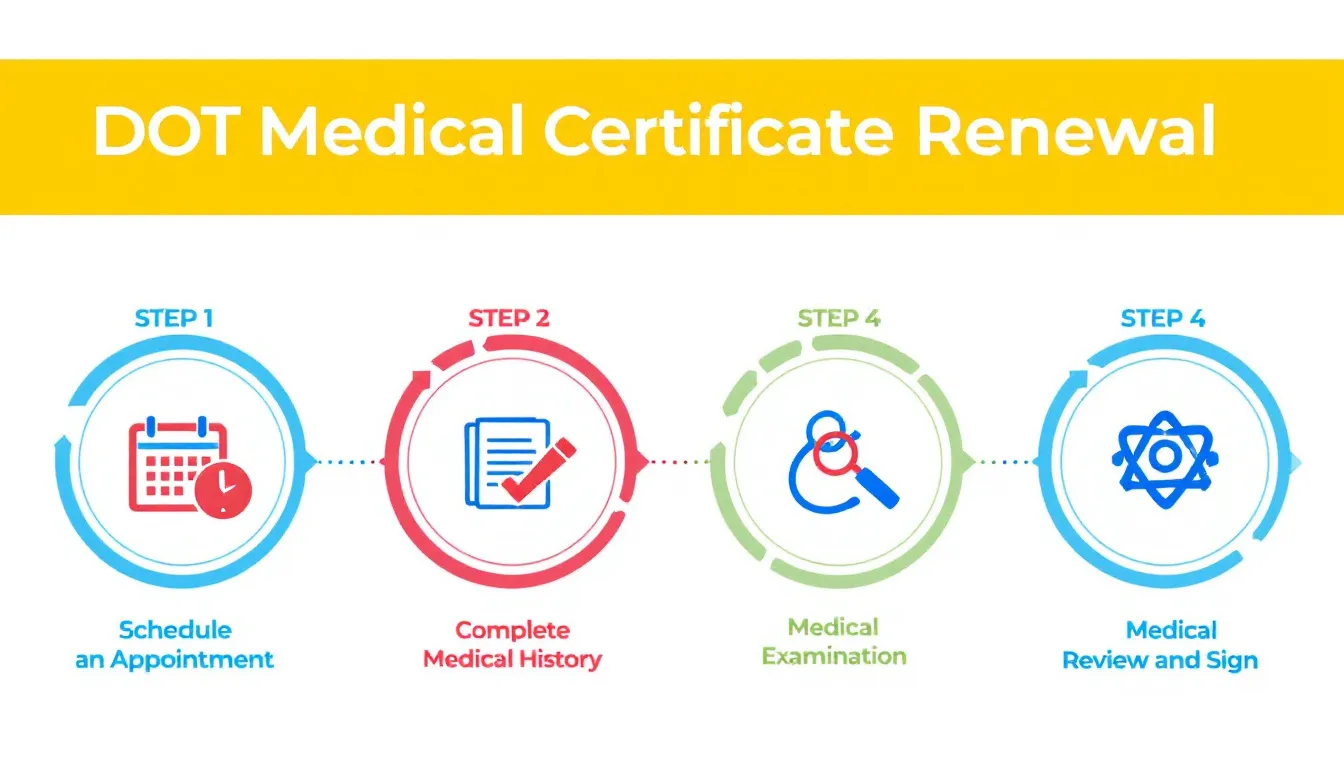
For holders of a Commercial Driver’s License (CDL), it is essential to keep their Department of Transportation (DOT) medical certificate current. Adhering to the renewal process is necessary for meeting health requirements and avoiding fines. Neglecting to update your medical certificate can lead to the suspension of your commercial driving rights.
Undergoing regular medical examinations as part of the renewal procedure is vital for reevaluating your health status, confirming you are still able-bodied enough for driving duties. By being alert about when renewals are due and what they entail, you can prevent any breaks in your profession as a driver.
Renewal Process
Drivers are required to renew their Department of Transportation (DOT) medical certificate approximately every two years, though the exact frequency may be influenced by state-specific rules and the driver’s personal health condition. To ensure adequate time for processing, drivers must provide their latest medical documents at a minimum of two weeks prior to the current certificate’s expiration date.
In conducting the renewal examination, a medical examiner will reevaluate key health indicators such as vision acuity, auditory capability, and blood pressure levels to confirm that drivers maintain the necessary fitness to safely operate commercial vehicles. It is essential for drivers to submit updated medical records no later than two weeks before they expire in order to prevent any interruption in certification status.
Maintaining Compliance
It is crucial for drivers to keep their DOT medical certification up-to-date in order to adhere to federal regulations. By keeping track of your medical certifications and overall health, you can renew necessary documents promptly, preventing any shift in your CDL status to ‘Not Certified,’ which could result in penalties or the suspension of driving rights.
The process of acquiring a medical certificate involves thorough evaluations by certified medical examiners who determine if a driver has any health issues that might cause unexpected emergencies on the road, following specific guidelines. Staying compliant not only ensures you maintain the right to drive, but also enhances safety on public roads for everyone.
Benefits of Holding a DOT Medical Certificate
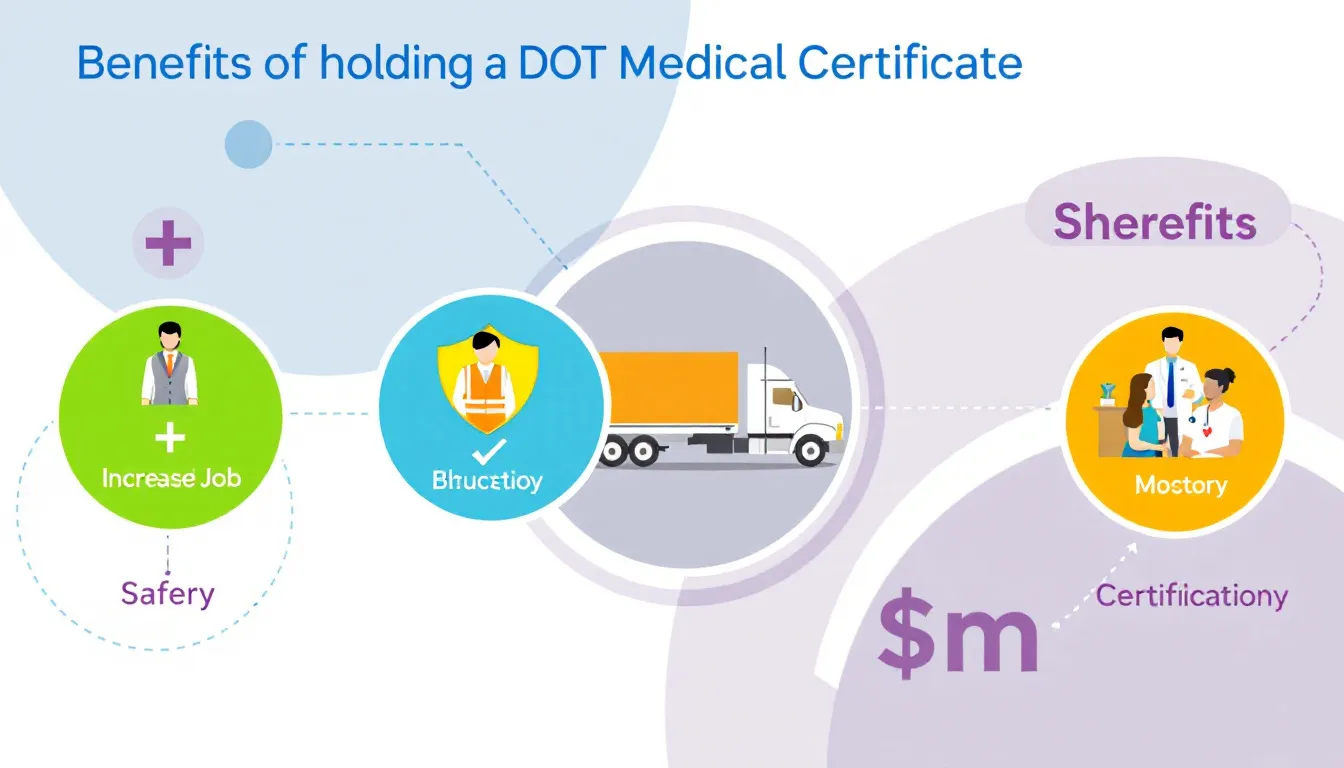
To possess a DOT medical certificate offers several advantages for both drivers and their hiring companies. It improves the likelihood of employment by verifying that drivers satisfy essential health standards necessary for performing their duties. This certification confirms that drivers are in suitable physical condition to drive, which is paramount for maintaining safety and adhering to federal rules.
Inclusion on the National Registry of Certified Medical Examiners serves to advance road safety as well as driver wellbeing, delivering benefits all around. The registry upholds stringent professional norms while ensuring certified medical examiners receive proper training, thereby elevating the calibre of care within this occupation.
By attaining certification from a registered and qualified examiner listed in the national registry of certified medical professionals, individuals affirm they have met critical health benchmarks according to DOT stipulations. Employers gain peace of mind knowing they employ drivers who are medically authorized under these strict regulations—an assurance provided through such rigorous certifications issued after comprehensive evaluations by trained specialists.
Job Qualification and Opportunities
Securing a DOT medical certificate can greatly improve one’s employment prospects within the transportation sector. Acquiring this medical card is essential for those seeking a commercial driver’s license, which in turn provides access to more lucrative roles.
Having an up-to-date DOT medical certificate makes applicants more appealing to potential employers because it verifies their adherence to health regulations and ensures they are fit for duty. This certification broadens the array of job opportunities available and portrays you as a dependable and conscientious applicant.
Safety and Liability Reduction
The DOT medical certificate is a verification that individuals are medically suitable to operate commercial vehicles, which enhances road safety. This requirement decreases the likelihood of accidents and medical emergencies, thereby reducing potential liability for employers.
By employing drivers with this certification—including intrastate drivers—employers can enjoy reduced insurance premiums and diminished risks. The certification demonstrates adherence to federal safety regulations, providing advantages for both drivers and their employers while fostering safer driving conditions on roads.
Common Health Conditions Assessed During DOT Physicals
Physicians conduct comprehensive evaluations of health parameters during DOT physicals to ascertain that drivers adhere to the required safety standards. These examinations cover a wide range of checks, including vital signs, urinalysis, and tests for vision and hearing capabilities, along with an in-depth examination of the driver’s medical history. It is important for drivers to openly discuss any existing medications or health issues with their medical provider throughout the exam.
One critical condition that is given particular attention during these physicals is sleep apnea since it has the potential to compromise driving ability. By identifying and managing such conditions effectively, it ensures that drivers are medically certified as fit to operate commercial vehicles safely on public roadways.
Summary
Securing and keeping a valid DOT medical certificate is an integral part of being a professional commercial driver. It involves several critical steps such as locating a medical examiner who is approved to conduct the physical examination, successfully completing it, and then ensuring that the certification is filed with the DMV. Each stage in this process plays a vital role in confirming adherence to standards and fostering safety on roadways.
Possessing this medical certification enhances your employability within your driving career while unlocking new job avenues and contributing to safer driving environments for everyone. The benefit extends beyond individual drivers. Employers also see advantages through diminished risk exposure and maintaining alignment with national transportation safety guidelines. Consequently, it’s crucial for you to take active measures towards acquiring and renewing your DOT medical certificate, paving the way for safe travels throughout your professional journey.
Needing a DOT medical certificate in Charlotte or the surrounding areas? Call 704-544-3494 for an appointment. Walk ins are accepted on a first come first serve basis. We even have Saturday morning hours.
Frequently Asked Questions
What is a DOT medical certificate, and why is it important?
A certificate for medical fitness, known as a DOT medical certificate, is essential for verifying that commercial drivers are in good health and capable of safely operating a vehicle in accordance with health regulations to enhance safety on the roads.
It is imperative to keep this medical certificate up to date in order to preserve the right to drive.
How can I find an approved medical examiner for my DOT physical?
To find an approved medical examiner for your DOT physical, search the National Registry of Certified Medical Examiners or contact the FMCSA directly.
These resources will ensure you are seeing a qualified professional.
What should I bring to my DOT physical examination?
It is essential to bring a list of all medications you are currently taking and any relevant medical history to ensure a comprehensive evaluation during your DOT physical examination.
This preparation will facilitate a more accurate assessment by the medical examiner.
How often do I need to renew my DOT medical certificate?
You typically need to renew your DOT medical certificate every 24 months, though this may vary based on state regulations and your individual health circumstances.
What happens if my DOT medical certificate lapses?
If your DOT medical certificate lapses, your CDL will be marked as ‘Not Certified,’ resulting in a potential loss of driving privileges.
Therefore, it is essential to renew your certificate promptly to avoid any disruptions.

I am the administrator for the Charlotte DOT Exam facility, located in Charlotte NC. I oversee the facility services providing DOT exams in accordance with the standards of the FMCSA. We also provide DOT drug testing with MRO support when required. Drug testing can also be done for non-DOT exams such as pre-employment. In order to minimize wait times, I always encourage our clients to contact us first and make an appointment.
I would also suggest that each individual wanting to test for the CDL health card read the article “Preparing For Your DOT Exam” as it lists several things to bring to the test, such as CPAP usage reports and medicine lists.

